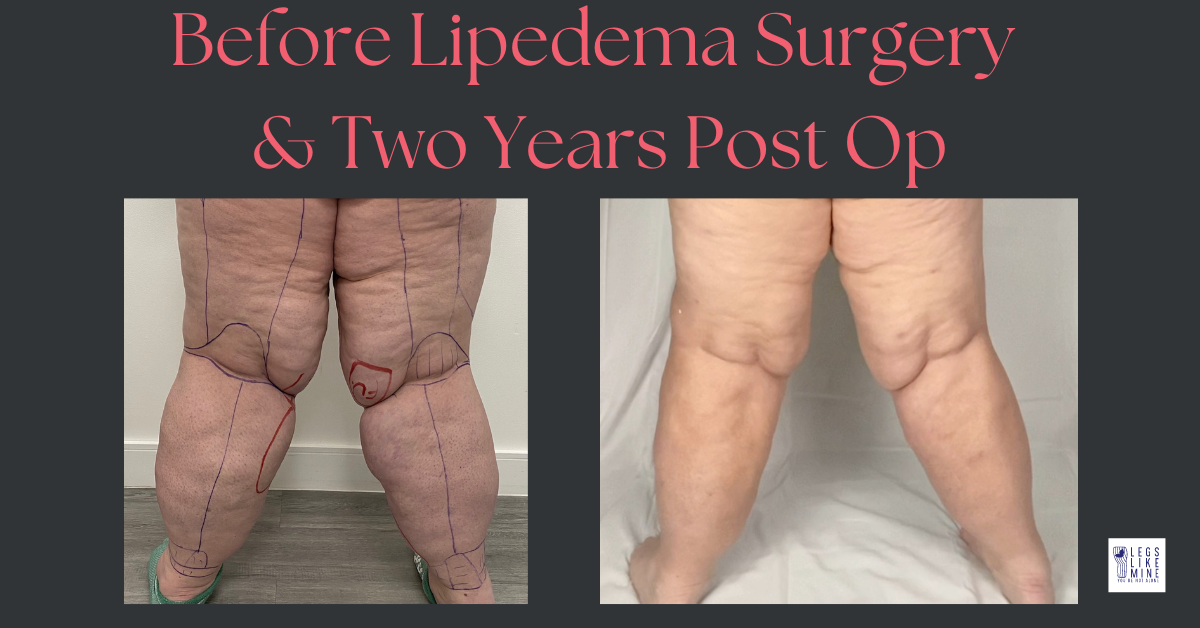Hi friends!
I’ve recently been experiencing some significant swelling in my left leg, which has had lymphedema in it since my first pregnancy and delivery, in addition to having lipedema. So, I decided to get back in with my Occupational Therapist to discuss strategies, and I visited with some lipedema doctor friends as well. The plan I came up with is to continue wearing compression, add in the daily use of a vibration plate for 15 minutes while seated only (due to my need for knee replacements), and begin taking a daily dose of Guaifenesin, the active ingredient in Mucinex, to try and move some lymph fluid up and out.
I’ll be making a follow up post about the vibration plate and how that’s going, but in general, follow up visits to my OT show that my leg is returning to it’s normal state, and that I will be bandaging to finish the job. However, I got a crazy side effect that I’d forgotten about: my skin broke out SO bad and I got a cold. And this kind of break out isn’t the kind that can be hidden with concealer it’s a “OMG what happened to you?” type of breakout. I thought about telling people I’d been stung by a pack of wasps, but it’s winter and they’re not anywhere. So, I’ve just been going along and trying to clean my face really well.
Anyway, in retrospect, I remember when I first got my lipedema diagnosis and started using my pump that I felt terrible for days. I got a cold, was super tired, and just felt that gross feeling you get when you’ve been at a slumber party, stayed up all night eating Oreos and pizza back in the day (if you know, you know, right?), and my skin broke out. I recalled that during this time, I knew I was squeezing toxins out of my legs that’d been there for ages and all those toxins were wreaking havoc on my system. And guess what, I did it again this time. The cure for this is drinking water.
Why Water is Important – a Little Bit of Science
Staying hydrated improves lymphatic flow. I know a lot of people think that if they drink less water if they’re swollen that it’ll help the swelling go down. This is not true.
The lymph fluid is returning juices that were once part of blood to the heart so it can be turned back into blood volume. The lymph vessels literally connect into blood veins and push the lymph back to the center of the body. The lymph carries proteins and toxins, which get passed through SO many lymph nodes that act as little immune systems, removing toxins or triggering the overall body’s immune system. Your doctor can tell when you’re sick by feeling lymph nodes that are swollen, but guess what else? She can tell that you’re dehydrated by finding swelling in your lymph nodes too. It’s because all the junk in lymph fluid didn’t move up and out like it was supposed to.
So, when you’re not drinking enough fluid, you’re more at risk of inflammation, infection, congestion, and development of lymphedema.
How Much Fluid do I Need?
You all know we’ve heard as many theories on this as we have diet plans. So I’m just going to quote the Mayo Clinic Website here:
“The U.S. National Academies of Sciences, Engineering, and Medicine determined that an adequate daily fluid intake is:
– About 15.5 cups (3.7 liters) of fluids a day for men
– About 11.5 cups (2.7 liters) of fluids a day for women
These recommendations cover fluids from water, other beverages and food. About 20% of daily fluid intake usually comes from food and the rest from drinks.”
Start Slowly
If you’re really not getting enough fluids, start by adding 8 oz. a week to your daily intake. This will help your body adjust and keep your kidneys and bladder happy. In no time, you’ll be drinking enough. As for me, I’m back on the water train as of today!
I hope this helps someone who’s wondering what the heck is going on with their skin when they start a new therapy.
Until next time friends, stay hydrated!
Susan
Source:
Mayo Clinic Staff. “Water: How much should you drink every day?” October 12 2022. Water: How much should you drink every day? – Mayo Clinic.
Disclaimers:
I’m not a medical professional and this isn’t medical advice. Discuss things with your doctor and therapist before making any changes to diet, therapies, medications, or nutrition.
This post contains paid ads. As an Amazon associate, I earn commissions on sales.










